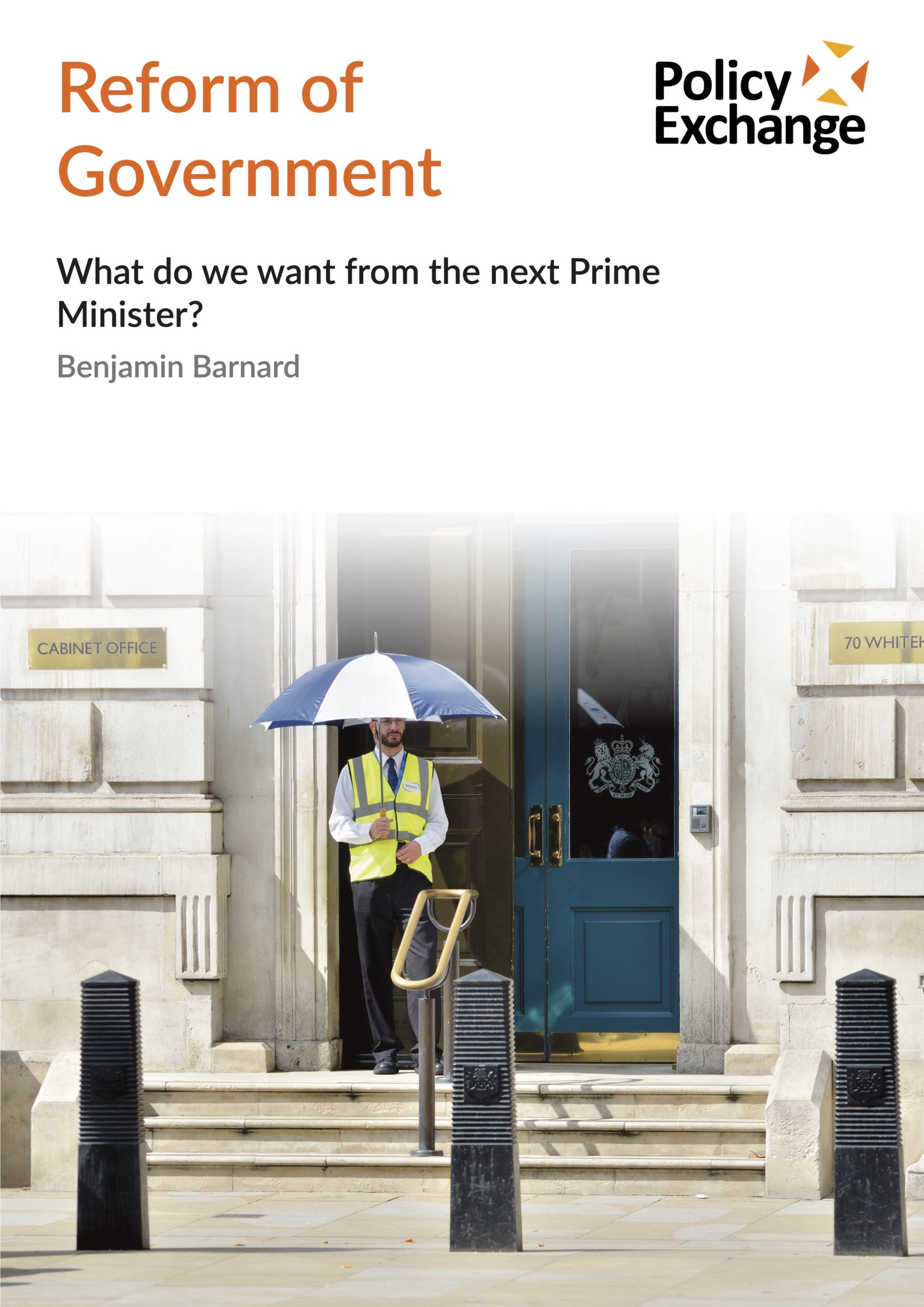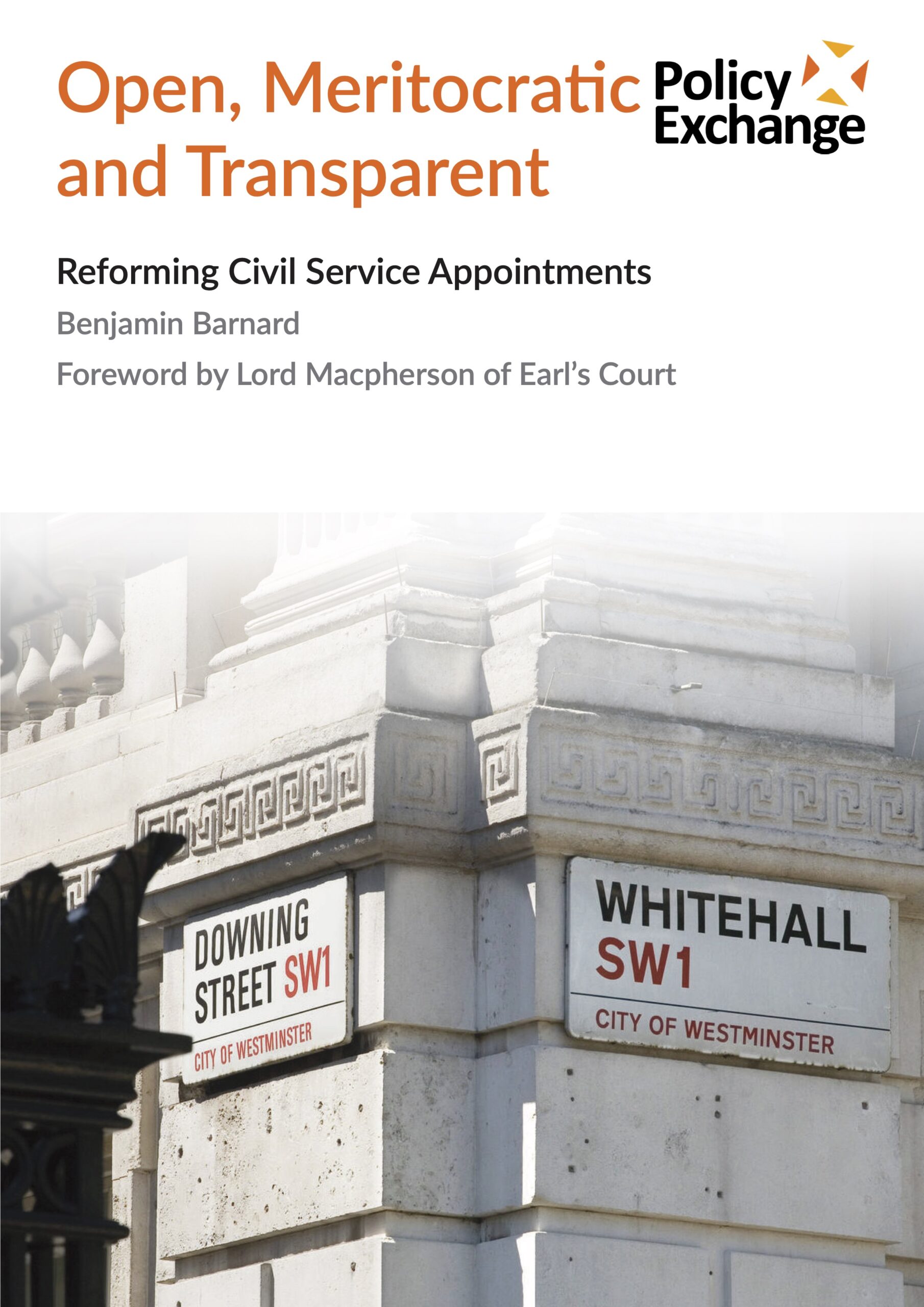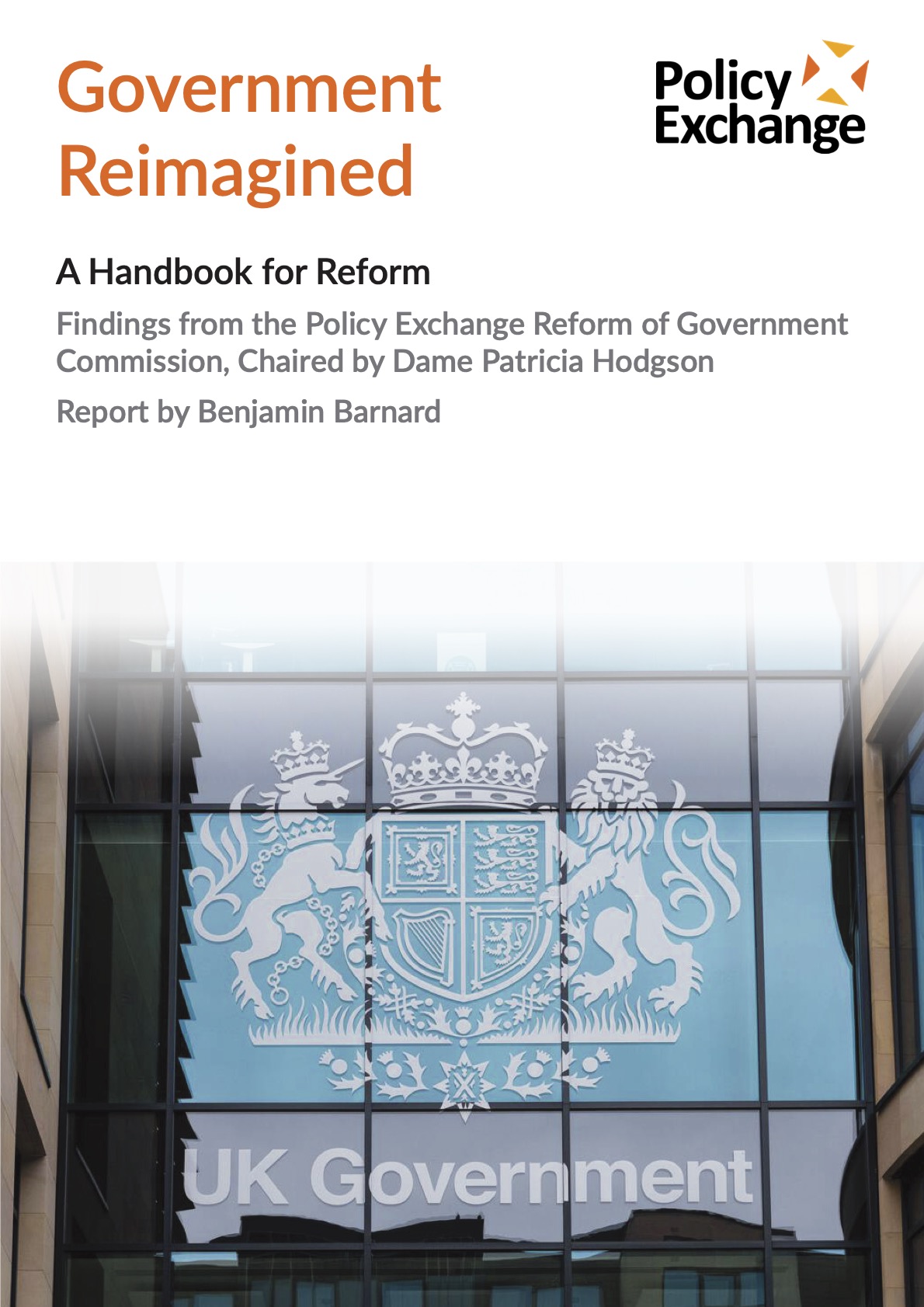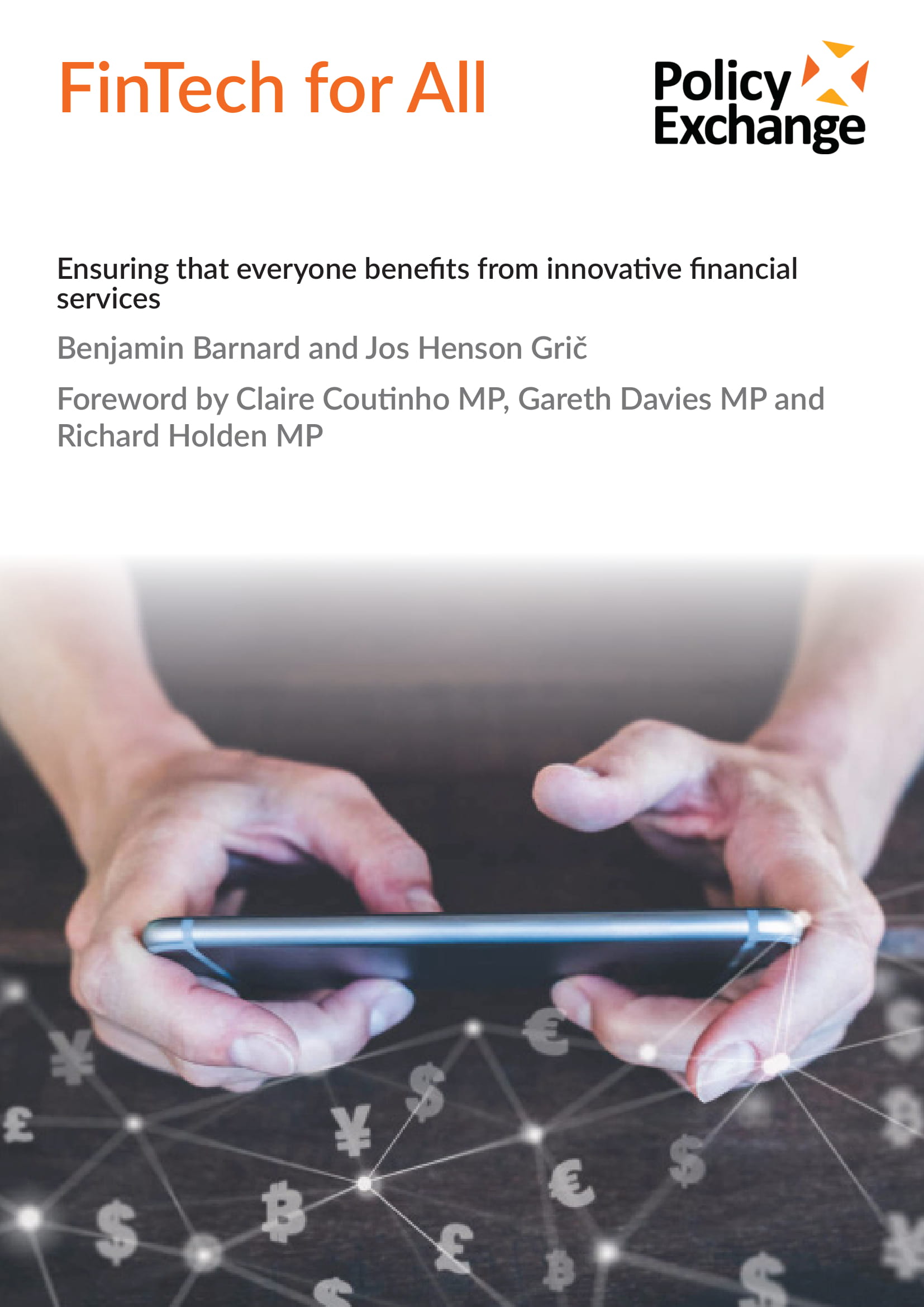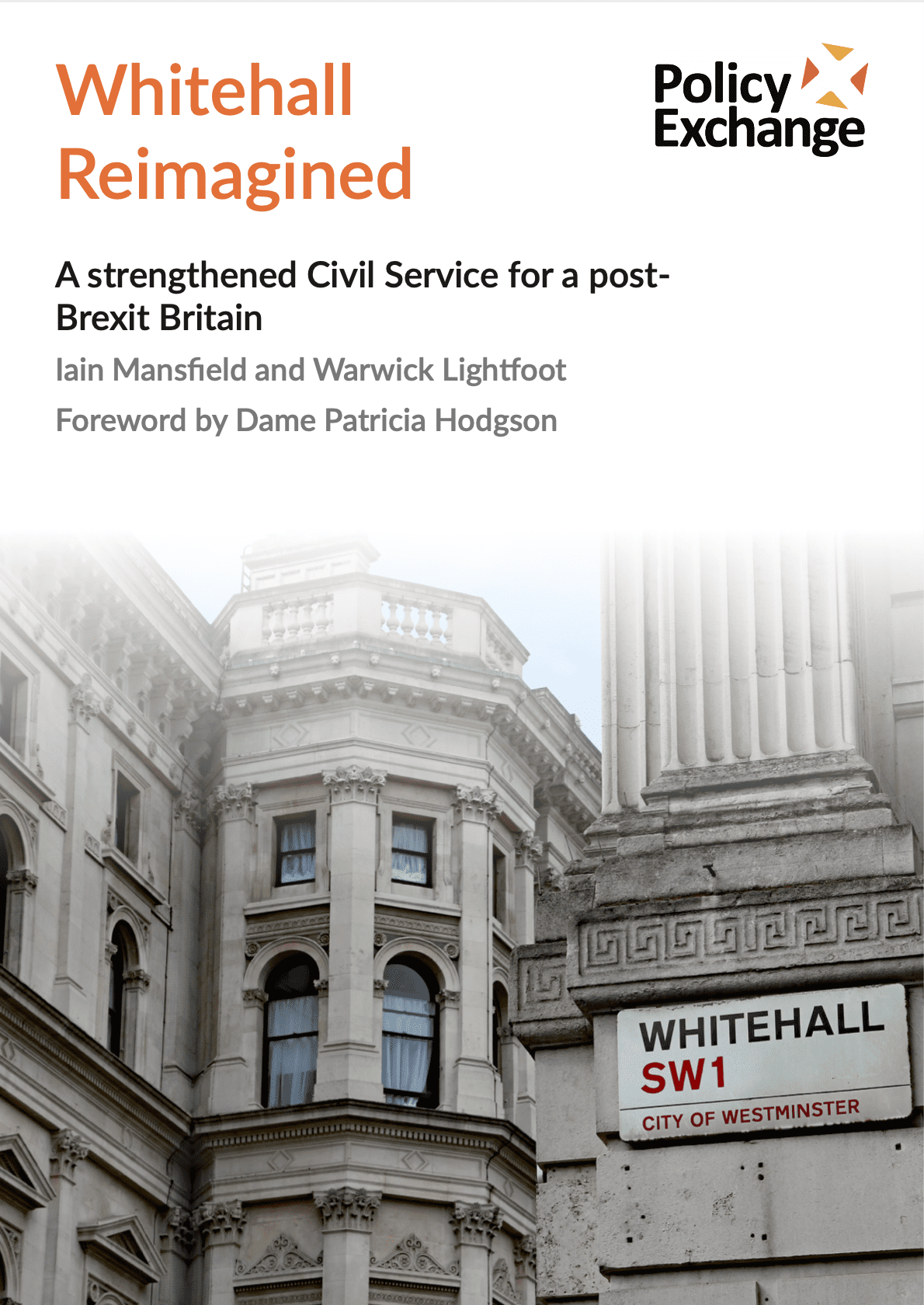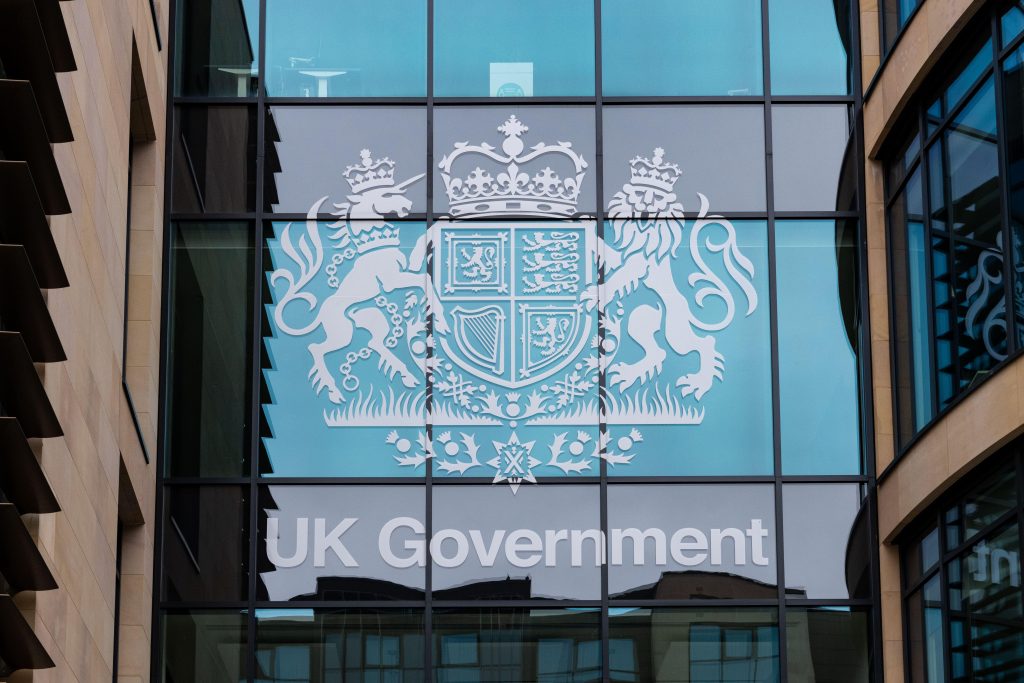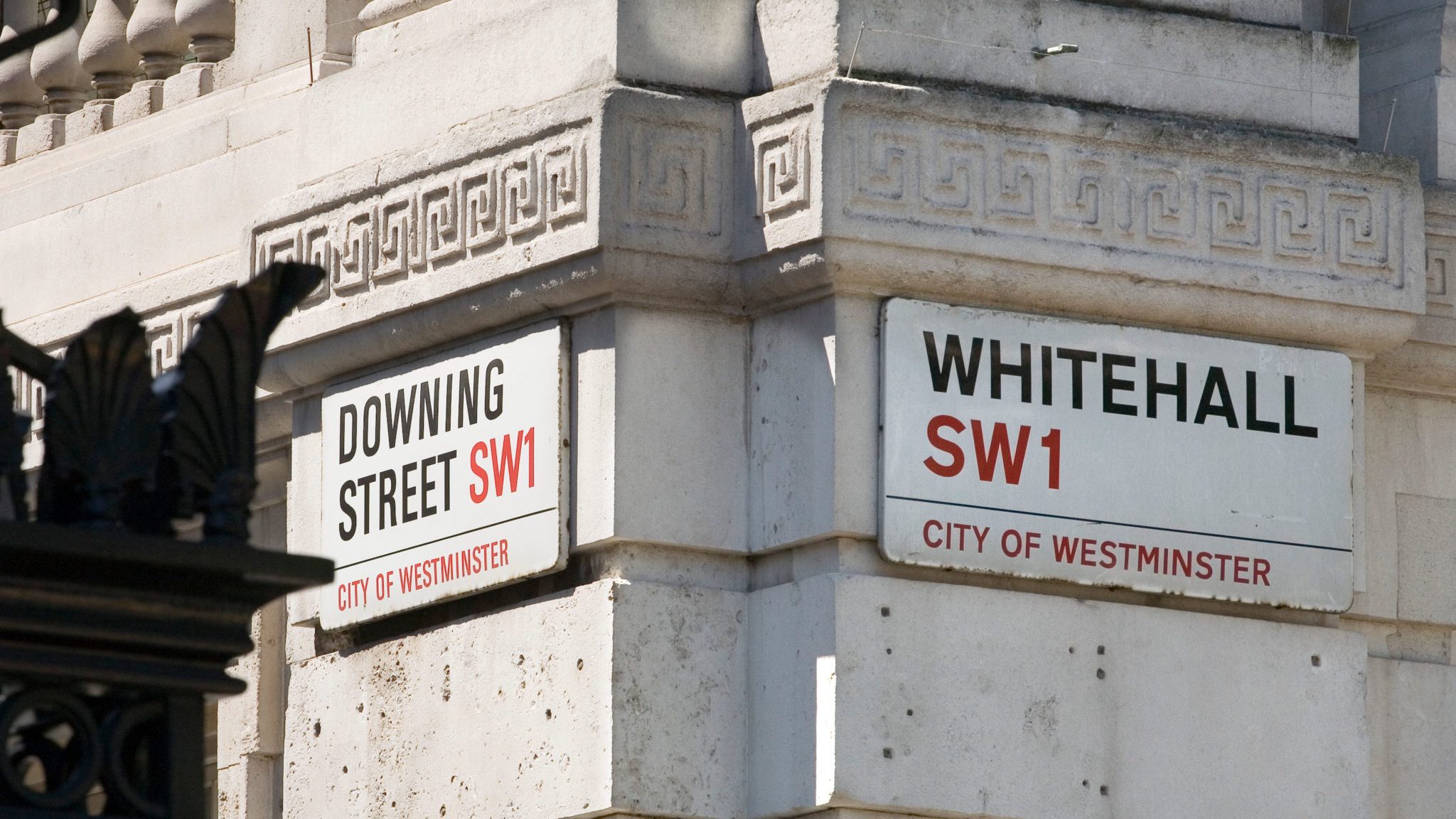Benjamin Barnard
Head of Government, Politics and Technology Policy (2019-2022)
Benjamin lead Policy Exchange’s research into Government Reform, Technology Policy and the Digital Economy. He joined Policy Exchange in July 2019 after graduating from Christ Church, Oxford with a First Class degree in History.
Download Publication Online Reader The success of every policy initiative ultimately depends upon the capacity and capabilities of the government itself. To face down the serious problems facing Britain, the next Prime Minister must embark on – and deliver – a comprehensive programme of government reform. Otherwise the Government they lead will be restricted to the delivery of outcomes shaped not by the problems we face, but by the limitations […]
Download Publication Online Reader Featuring a Foreword by Lord Macpherson of Earls Court, Open, Meritocratic and Transparent calls for an urgent overhaul of Civil Service appointments in light of recent revelations about the appointment of Lex Greensill. Related Publications
A Handbook for Reform Findings from the Policy Exchange Reform of Government Commission, Chaired by Dame Patricia Hodgson Download Publication Policy Exchange has convened a distinguished Reform of Government Commission, chaired by Dame Patricia Hodgson DBE, to determine how government can be modernised and equipped for the modern world. Each Commissioner brought their particular expertise and experience to the Commission’s discussions, and this report reflects a broad consensus of views […]
Download Publication Online Reader The UK is one of the world’s leading maritime nations. As it leaves the European Union, Britain’s status as a leading economic and geo-political power depends upon the strength of its maritime industry. This paper, co-authored by former Transport Minister Nusrat Ghani MP, highlights the difficulties facing the maritime sector and shows how support for our ports, shipping companies, shipbuilders and others can play a central […]
Download Publication Online Reader Every day we have to prove that we are who we say are. At present, proving one’s identity online can be cumbersome and difficult in the UK, so citizens often end up sending sensitive documents, such as passports and driving licenses, by post. This report, by Benjamin Barnard, argues that the Government needs to develop better systems to allow people to create and use ‘digital identities’ […]
Research by Policy Exchange finds that fraud and error during the COVID-19 crisis will cost the UK Government in the region of £4.6 billion. The lower bound for the cost of fraud in this crisis is £1.3 billion and the upper bound is £7.9 billion, in light of total projected expenditure of £154.3 billion by the Government (excluding additional expenditure announced in the 8th July 2020 Economic Update). The true value may be closer to the upper bound, due to the higher than usual levels of fraud that normally accompany disaster management.
Why do 1.23 million people lack access to a bank account? What can be done to help the 10 million people who rely on non-standard credit? How can the Government ensure that everybody gets access to debt and financial advice?
This report, by Benjamin Barnard and Jos Henson Gric, shows how innovations in Financial Technology can improve access to banking, credit, insurance and debt advice services. It shows how the Government can encourage the one of the UK’s most innovative sectors to improve the lives of the poorest in society, particularly those on Universal Credit.
The Government should use the opportunity of the stability created by the election result to reform the civil service to make it more democratically accountable and better able to deliver on the mandate of the government of the day. Better decision making, streamlined processes and improved accountability will lead to improved policy making and legislation, more effective delivery and improved public services, benefiting every part of the UK.
The second chapter of the Levelling Up White Paper is entitled “systems reform”. Its central contention is that any policy regime aimed at “levelling up” opportunity across the United Kingdom must acknowledge the complex and interconnected economic, social and institutional factors that shape regional disparities. Crucially, it acknowledges that it will be impossible to “level up” the United Kingdom unless the machinery of government is reformed in the process. The […]
The Levelling Up White Paper includes a series of new research, development and innovation investments to strengthen the UK’s science base and to boost economic growth across the whole of the UK. As Professor Richard Jones (who is speaking at Policy Exchange on levelling up R&D next week) has argued, the UK’s research and development base is too small for the size of our economy, is particularly weak in translational research and […]
The Coronavirus pandemic exposed and exacerbated many of the long-term weaknesses of the British government, drawing particular attention to the complexity of the UK’s public body landscape. August 2020 provided a particular moment of reckoning. Within a matter of weeks, the Government confirmed that Public Health England would be disbanded and MPs from both major parties called for Ofqual (the exams regulator) to be scrapped after the exam grades fiasco. […]
Lord Hennessy spent his entire journalistic career writing about the machinery of government in Britain. His classic 1996 work “The Hidden Wiring: Unearthing The British Constitution” set out how the British Constitution operated in practice and revealed the often obscure nexuses of administrative power. However, since the passage of the Freedom of Information Act in 2000 and the advent of GOV.UK, we know more about government in the United Kingdom […]
Digital contact tracing looks set to dominate the political agenda for the coming weeks, if not months. Without a vaccine, and in the absence of widespread population immunity, the only methods to stop the transmission of SARS-CoV-2 are those of standard epidemic control such as case isolation, physical distancing, contact tracing and increasing hygiene measures.
The call from the Prime Minister’s Senior Adviser, Dominic Cummings, for “data scientists, project managers, policy experts and assorted weirdos” has sent heads spinning in Westminster and on Twitter. But what does this mean in practice and where should he start? Well, as Policy Exchange pointed out in Whitehall Reimagined, the Government has a unique opportunity to revitalise its digital leadership. Key to the fulfilment of their digital ambitions will be the appointment of the newly-created Government Chief Digital Information Officer (CDIO).

